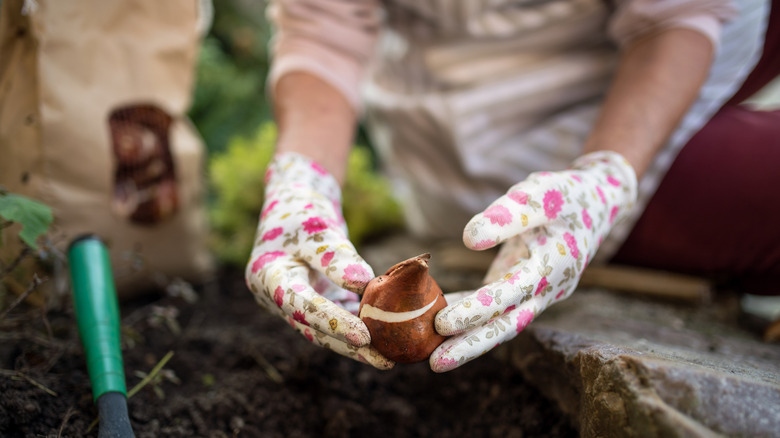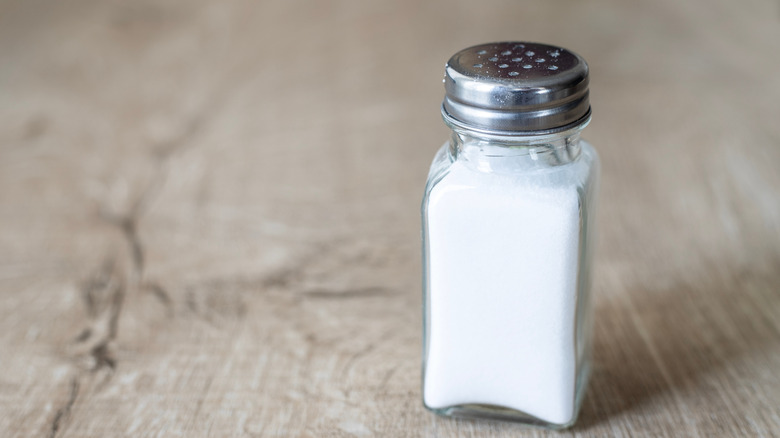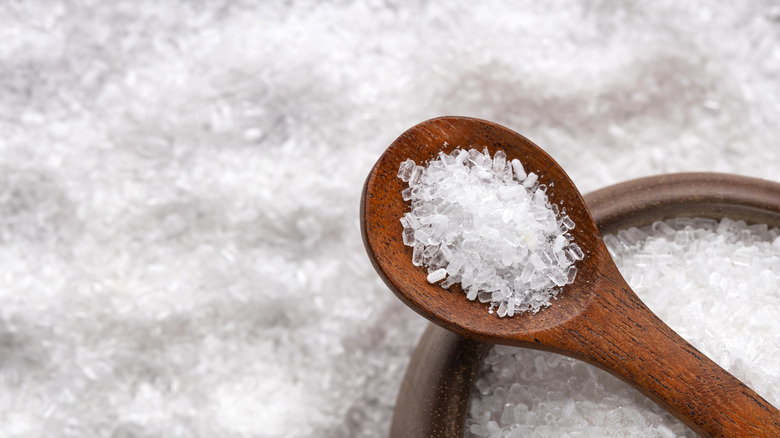Can This Kitchen Ingredient Keep Your Freshly Planted Bulbs Safe From Pests? Here's What To Know
When planting bulbs in your garden, it's imperative to be aware of the potential pests that might want to dig them up. There's nothing more frustrating than planting a new section of bulbs and finding out it's been eaten away. Insects like bulb mites, aphids, and slugs are notorious for feasting on new plants and causing severe damage. While you may have seen posts circulating online about the benefits of adding sea salt to your garden to prevent this, note that it might not be the most effective form of pesticide. Although it might be able to ward off smaller mollusks that are averse to salt, like snails and slugs, as well as some types of insects, there is little scientific evidence to show that sea salt can repel pests from bulbs in general.
Contrary to online rumors, sea salt will also not reliably ward off larger pests, like rodents, from your plants. While some sources recommend adding this type of salt to protect your planted bulbs from squirrels, rats, and rabbits, the rodents would have to consume a large amount of salt to be affected, and the possibility of plant damage isn't worth it. If you're going to try a type of salt against certain nuisances, the better bet would be with Epsom salt rather than sea salt. However, neither ingredient has proven to be incredibly successful, and you may be better off using other natural pesticides that won't risk harm to your bulbs.
Can you use sea salt to protect your bulbs from pests?
Sea salt might seem like a good option during your fight against bulb-eating mollusks. When a mollusk interacts with salt, the material can dry out its body through osmosis, causing it to dehydrate and die. Mollusks like slugs and snails are particularly susceptible to injury from sea salt. To deter these creatures from feasting on your bulbs, some suggest sprinkling sea salt around your new bulbs, forming a barrier around the plants. Salt could also possibly work in your favor if your plants are covered in larvae or other soft-bodied pests that live in the soil.
The issue is that when you add sea salt to your garden, you can't use too much. An excessive amount of salt will not only disrupt germination, but it could also harm your plants and their roots and stunt their growth, with the salt drawing out the water needed to hydrate them. The excessive sodium content can affect how your plant gathers nutrients and negatively affect the process of photosynthesis after it sprouts.
Other ways to keep your planted bulbs safe
While sea salt might be slightly effective against small insects, snails, or slugs trying to eat your bulbs, there is another type of salt you could try: Epsom salt. When just using Epsom salt by itself, you can add some granules around your bulbs to stop slugs from getting too close. As a bonus, the Epsom salt may be a convenient household solution to fight unwanted weeds in your garden. If you are using it, make sure not to add too much to your plants, as excess use could harm your plants or create an imbalance in your soil.
Although it's more practical than sea salt, Epsom salt is still not a top choice for protecting your planted bulbs. In order to successfully prevent pests from consuming your bulbs, there are a few more tactics that have better evidence to support them. One of the best ways to keep squirrels from digging up your bulbs is to protect them completely using hardware cloth, creating cages around the vulnerable plants. Another option is to choose bulbs that pests tend to avoid or ignore. For example, grape hyacinth and daffodil bulbs don't require as much defense as crocuses or tulips.


